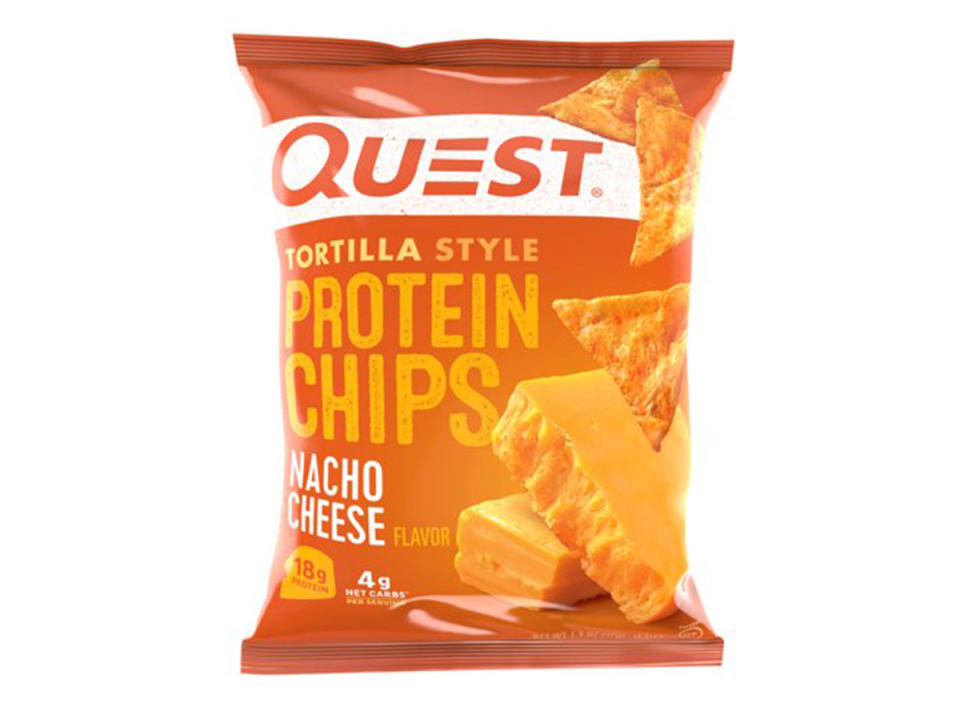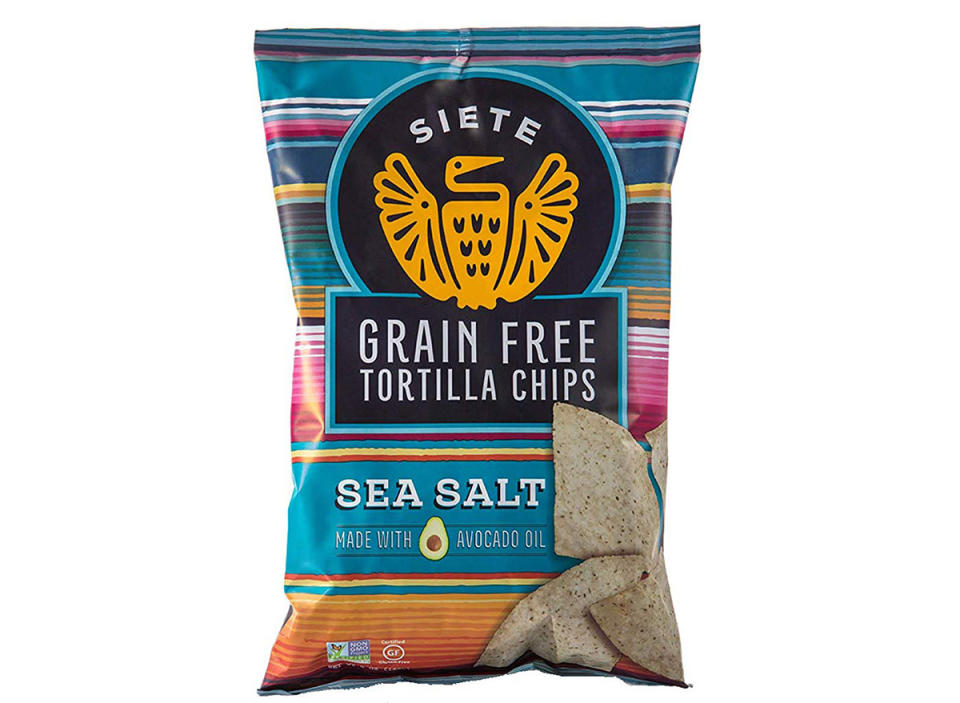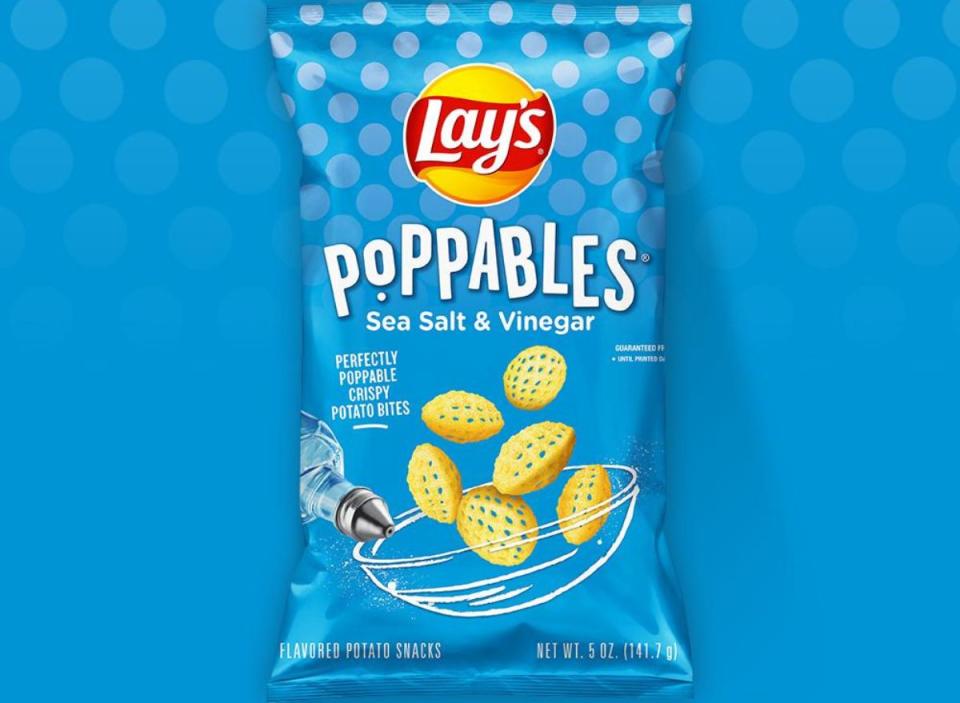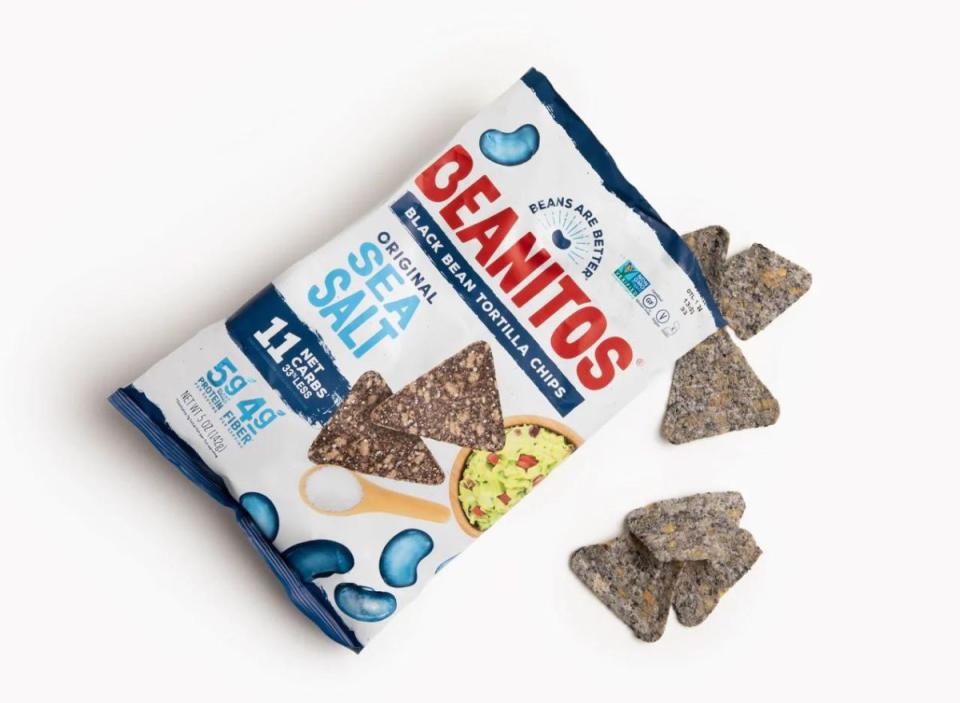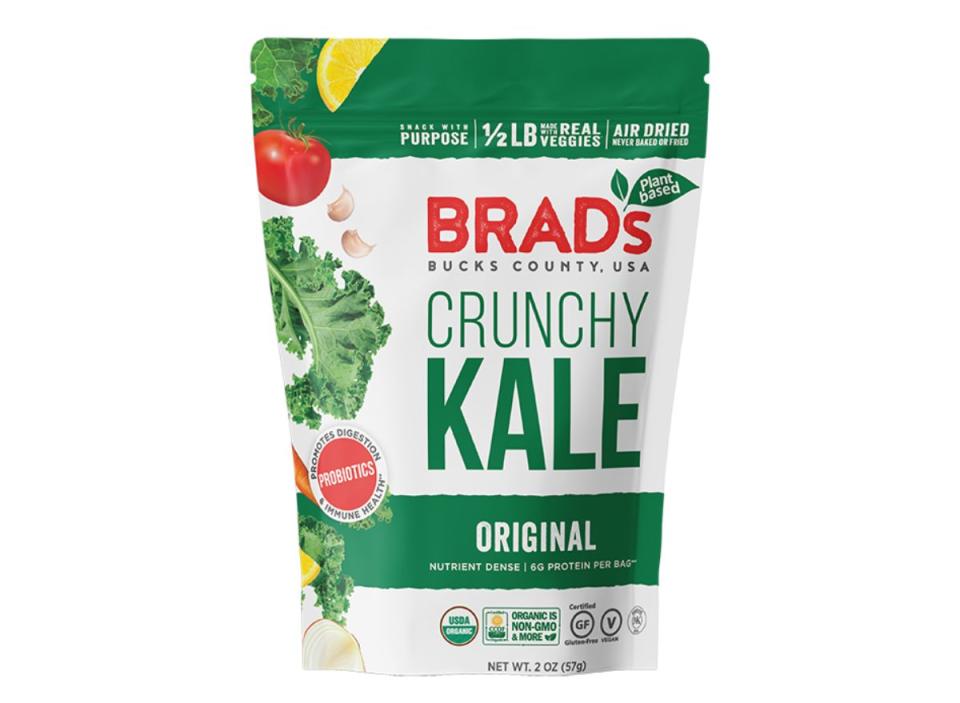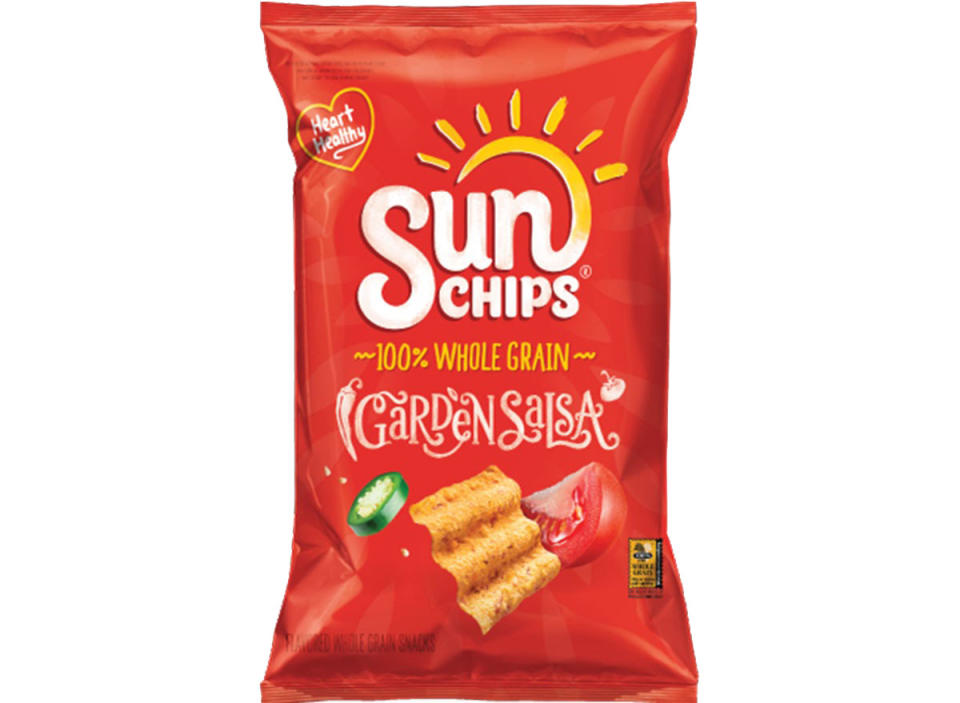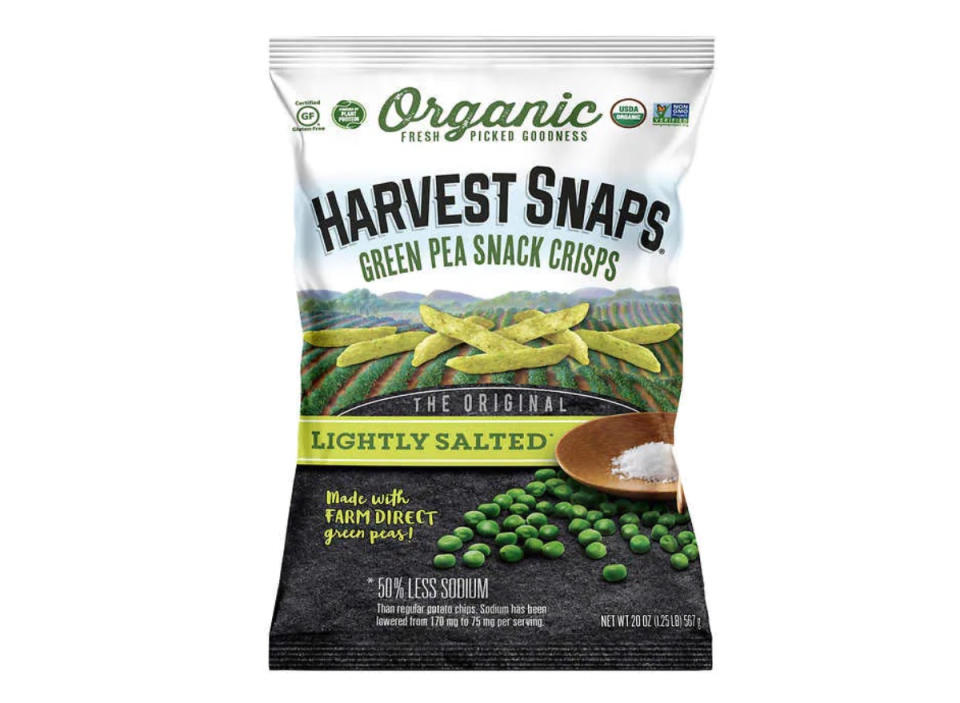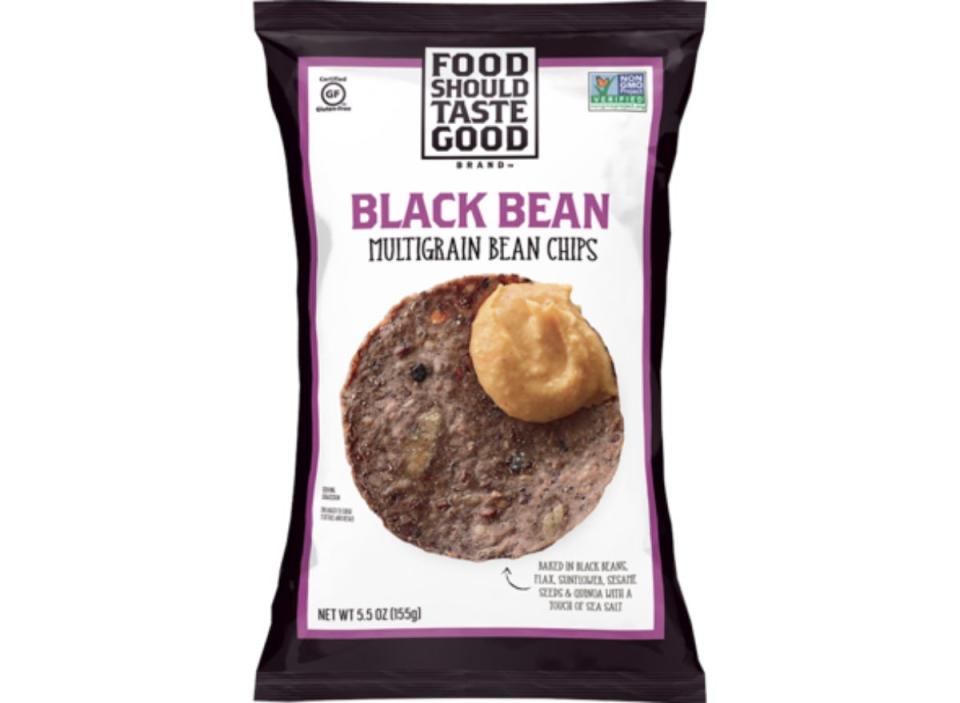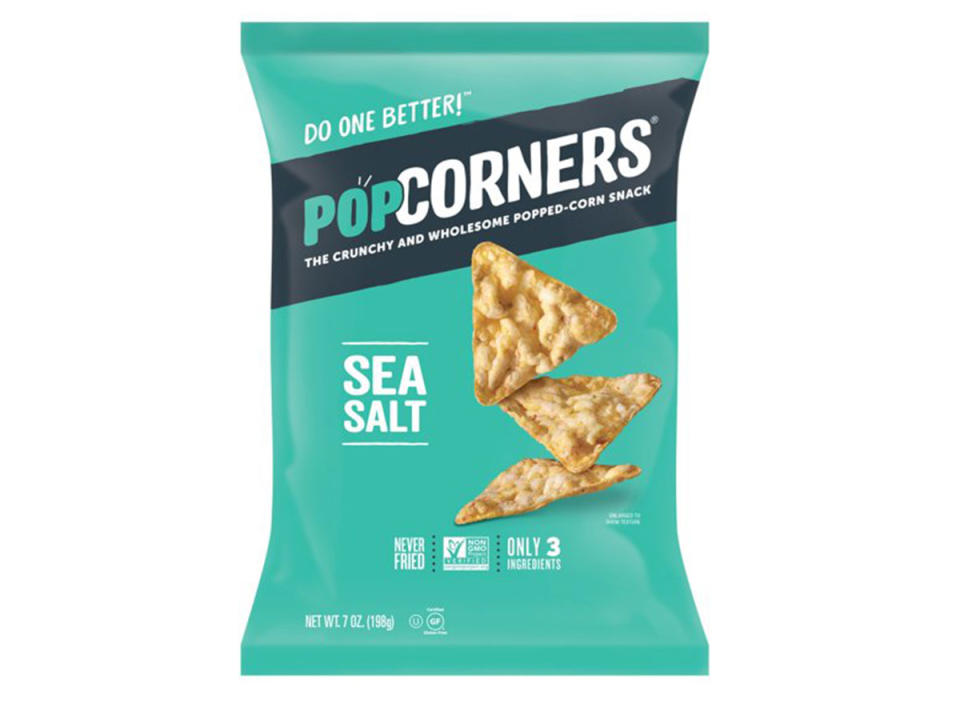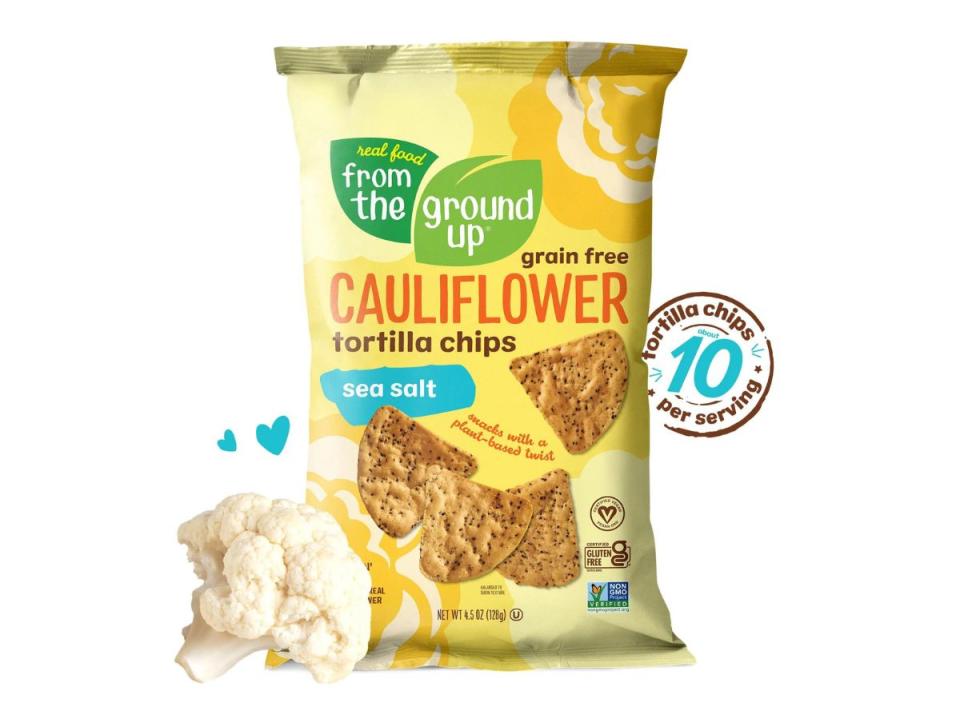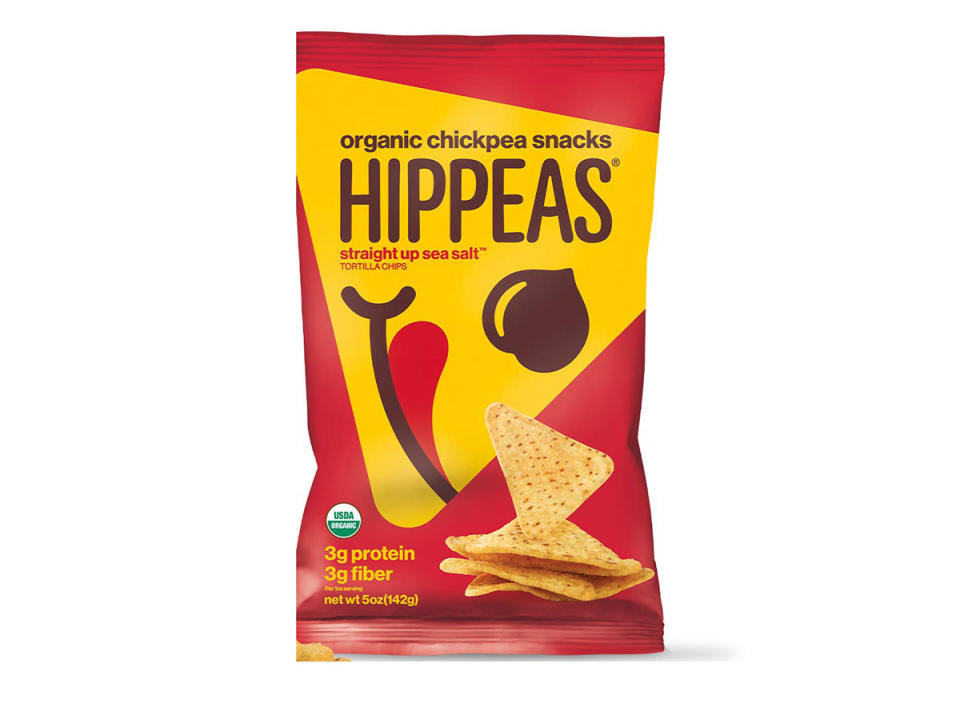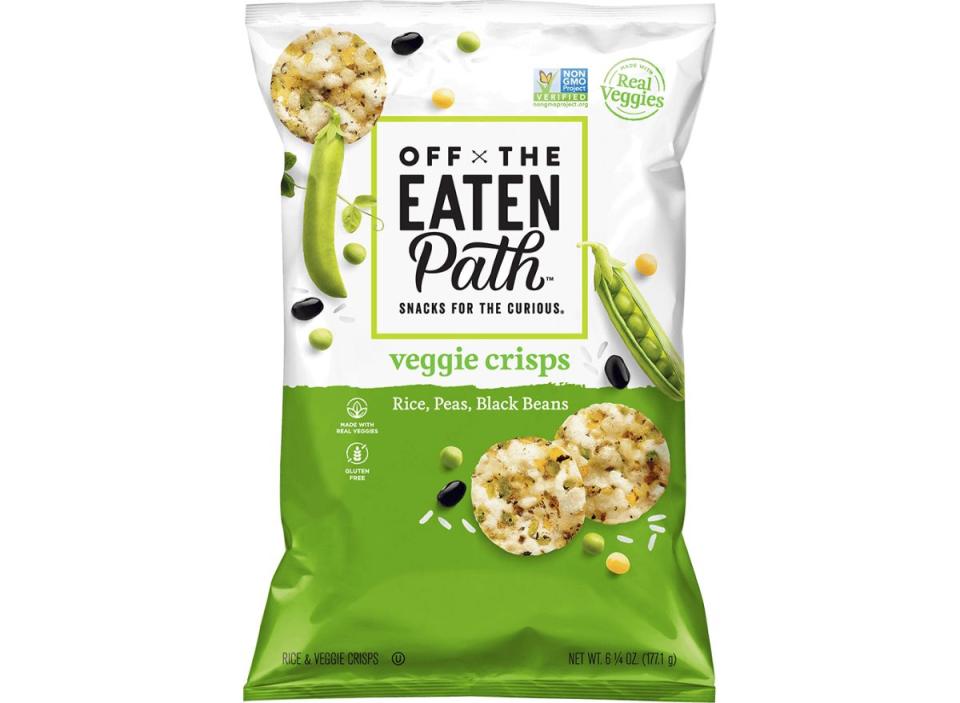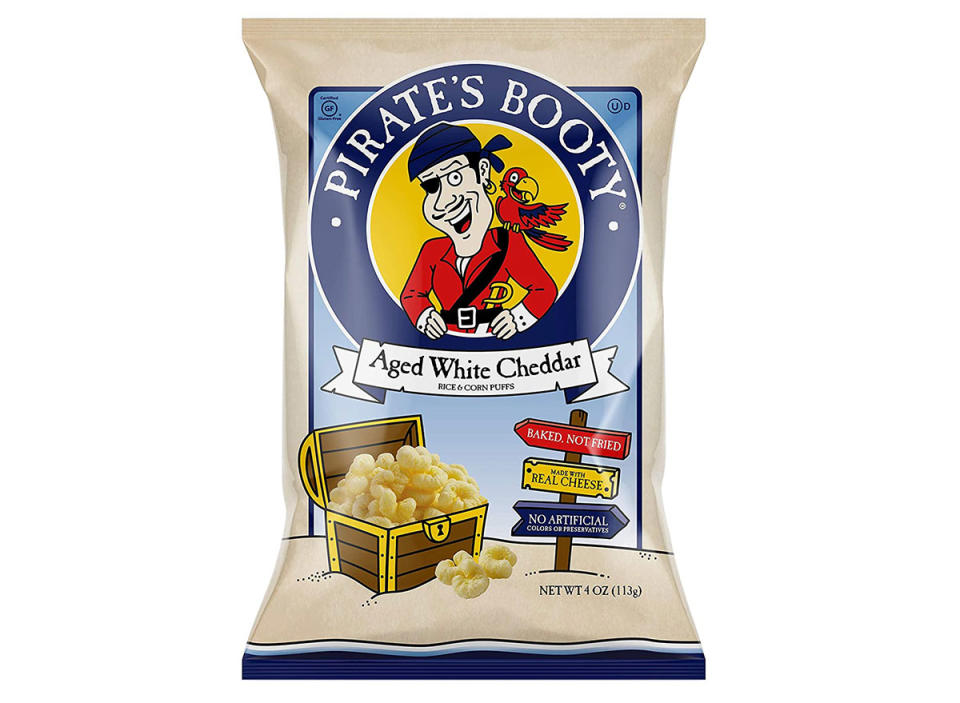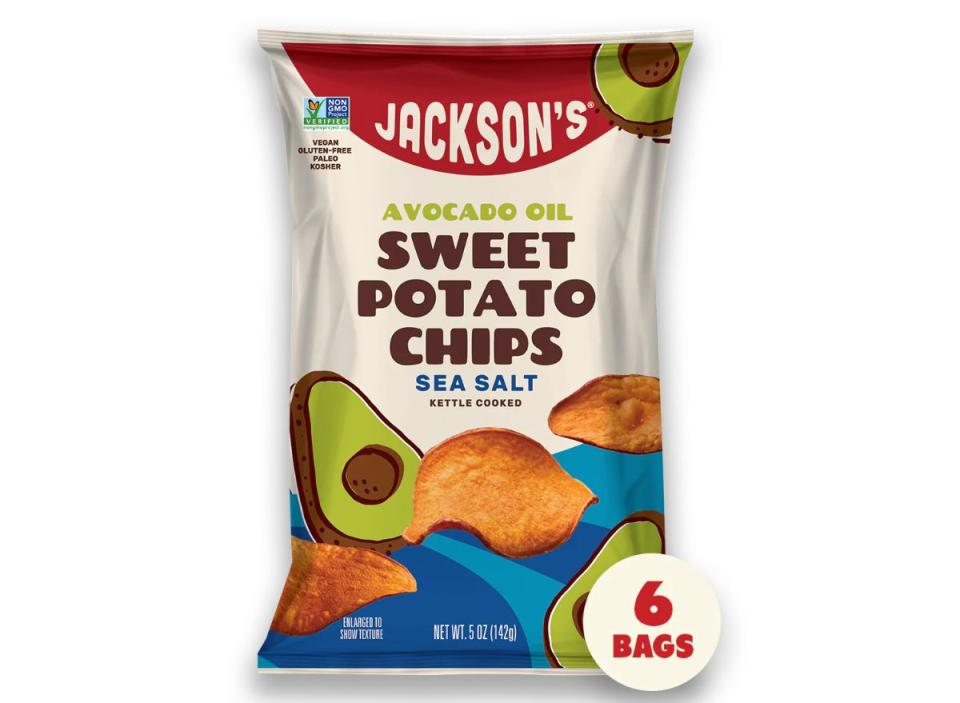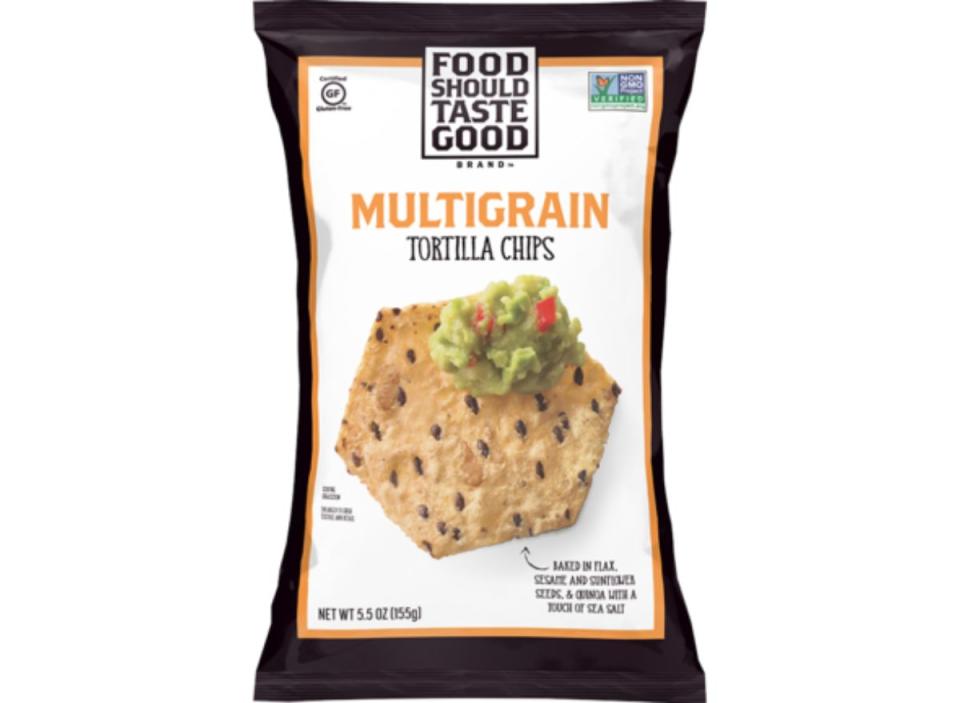Avocado toast with egg whites and pea shoots on paper against a white wood background. (Jennifer Barrow, Alamy)
Estimated read time: 6-7 minutes
NEW YORK — After exercising more, the top two New Year's resolutions every year are eating healthier and losing weight. More than half of all Americans want to do one or both — and of course, the two resolutions are connected.
The reality is weight loss and maintenance involve tradeoffs. It's a balancing act of figuring out how much of your favorite foods you can eat while working toward your goals.
Unfortunately, there is no free pass to eat anything you want without gaining weight. But there are ways to feel less deprived in your quest to maintain or lose weight.
Here are eight foods dieticians recommend to their coaching clients to get the desired results without feeling deprived.
What foods can more easily lead to weight gain?
Weight gain occurs when you take in more calories than you burn, day in and day out.
Ultra-processed foods typically have more fat, sugar, and salt than less processed foods. This crave-worthy combination makes it easier to overeat and, therefore, to gain weight.
In a 2021 study, normal-weight adults who ate the most ultra-processed foods were 15% more likely to become overweight or obese than those who ate the least.
Less processed foods tend to be more filling and lower in calories. Some minimally processed foods could even help you lose weight.
Foods that contain a lot of fiber, water, and protein help you feel full faster and leave less space in the belly for additional calories.
Foods you can eat a lot of without weight gain
1 — Cauliflower
If you're looking for low-calorie food that's also filling, cauliflower fits the bill. An entire head contains just 146 calories (not that I'd recommend eating that much in one sitting)!
Calories aside, cauliflower is incredibly versatile. It's excellent roasted or raw, and you can also swap riced cauliflower out for any recipe that calls for regular rice (like this Surf n' Turf Paella Recipe ).
Nutrition facts for ½ cup chopped cauliflower: 27 calories, 0.3 g fat, 5 g carbohydrate (2.1 g fiber), 2.1 g protein
2 — Zucchini
Unfortunately, if you eat a lot of noodles, you probably gain weight. You can, however, eat a lot of zoodles.
Zoodles are zucchini noodles made by slicing zucchini in a spiral formation. It's a great stand-in for pasta when trying to eat only a few calories.
One cup of zucchini noodles contains just 20 calories and is also very filling. By contrast, one cup of cooked spaghetti has 221 calories, and most people eat far more pasta than that.
Nutrition facts for one large zucchini: 55 calories, 1 g fat, 10 g carbohydrate (3.2 g fiber), 4 g protein
3 —Strawberries
Craving something sweet? You can eat a lot of strawberries without gaining weight. One cup of halved strawberries has only 49 calories, with 3 grams of fiber!
For reference, that's about the same as a single Chips Ahoy cookie — and good luck eating just one of those.
Subbing strawberries for your dessert is a great way to satisfy your sweet tooth without packing on the pounds.
Nutrition facts for 1 cup strawberries, halved: 49 calories, 0.5 g fat, 11.7 g carbohydrate (3 g fiber), 1 g protein
4 — Air popped popcorn
Craving a snack that isn't, say, a cucumber? You can eat a lot of air-popped popcorn without gaining weight. Popcorn comes in at 31 calories per cup, so you won't do too much damage even if you eat more than you planned.
Unlike many snack foods, popcorn also provides a bit of fiber. This can help you meet your daily fiber quota, something most Americans fall short on, while allowing you to fill up faster.
Nutrition facts for 1 cup air-popped popcorn: 31 calories, 0 g fat, 6 g carbohydrate (1 g fiber), 1 g protein
5 — Salmon
High-protein foods are more filling than high-carb or high-fat foods.
You can and should eat lots of high-protein foods because it's difficult to overeat them and because they can also help you consume fewer calories from other sources.
Several studies link more frequent fish intake with decreased waist circumference. You can eat any fish you like, as long as it's not fried or covered in high-calorie sauces.
Salmon is a great source of heart-healthy omega-3 fats, and can be immensely helpful when eaten twice a week.
Nutrition facts for 3 ounces of salmon: 177 calories, 11 g fat, 0 g carbohydrate, 17 g protein
6 — Low-fat cottage cheese
You could eat a LOT of cottage cheese without gaining weight. Nearly half of its calories come from protein, which has many attributes that promote weight maintenance and weight loss.
Protein is very filling. But compared to foods high in fat or carbohydrates, protein-rich foods may be less likely to be stored in body fat, even when overeating them.
When paired with resistance training, high-protein diets also promote muscle growth. This can help you look leaner and also burn more calories at rest.
Nutrition facts for 1 cup low fat cottage cheese: 183 calories, 5 g fat, 11 g carbohydrate (0 g fiber), 24 g protein
7 — Nuts
Nuts are higher in calories and fat than many foods on this list, so you might be surprised that you can eat lots of them without gaining weight. But studies suggest that nuts don't make you fat, even if you eat them daily.
There's even some evidence from this study in 2017 that adults who eat more of them weigh less and have smaller waists than people who don't eat as many.
Nutrition data for one ounce of nuts: 172 calories, 15 g fat, 6 g carbohydrate (2 g fiber), 6 g protein
8 — Avocado
Need additional proof that high-fat foods don't make you fat? You can eat avocado every day without having to buy bigger jeans.
In a 2021 study, researchers divided overweight adults into two groups. Both groups followed similar diets and ate the same number of calories each day. The only difference is that one group ate a fresh Hass avocado daily.
After 12 weeks, women in the avocado group lost significantly more visceral (deep abdominal) fat than those who didn't eat avocados.
Subjects in a more recent six-month study saw no improvements in belly fat from eating avocado daily, but they didn't gain more belly fat either.
Interestingly, in this study, overall diet quality improved among those who added avocado to their regular diet. Rest assured, adding that guacamole to your burrito is unlikely to give you a belly.
Nutrition facts for one Hass avocado: 227 calories, 21 g fat, 12 g carbohydrate (9.2 g fiber), 2.7 g protein
Eat away
Any food can make you gain weight if it's contributing to a calorie surplus. But some foods are more helpful than others at keeping your calorie intake low enough to maintain or lose weight.
The best choices are minimally processed or unprocessed foods that are low in calories and very filling.
Higher-calorie foods can sometimes be eaten more often or in larger amounts if they contain a lot of fiber, protein, or water. These foods fill the belly and help you take in fewer calories throughout the day.
This post was produced by ChaChingQueen and syndicated by Wealth of Geeks.
Most recent Lifestyle stories
More stories you may be interested in
Foods you can eat plenty of without getting fat - KSL.com
Read More
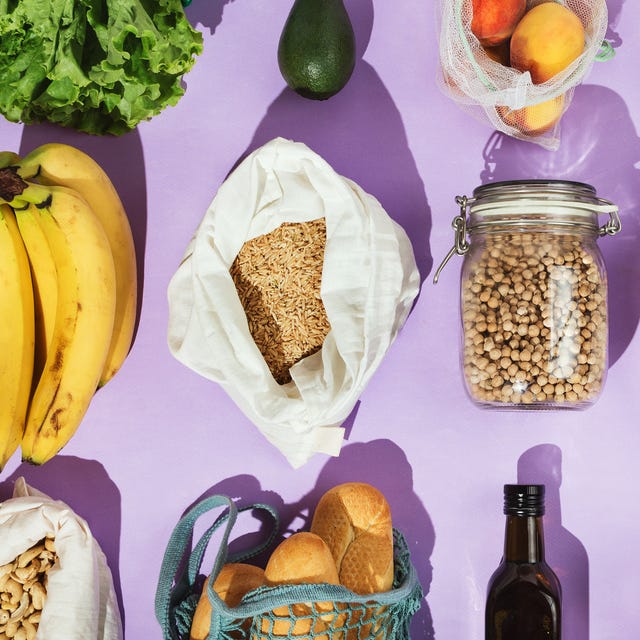


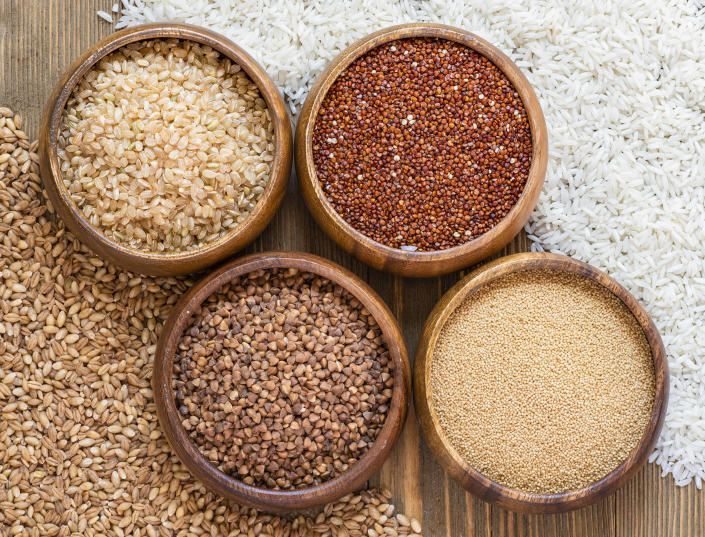
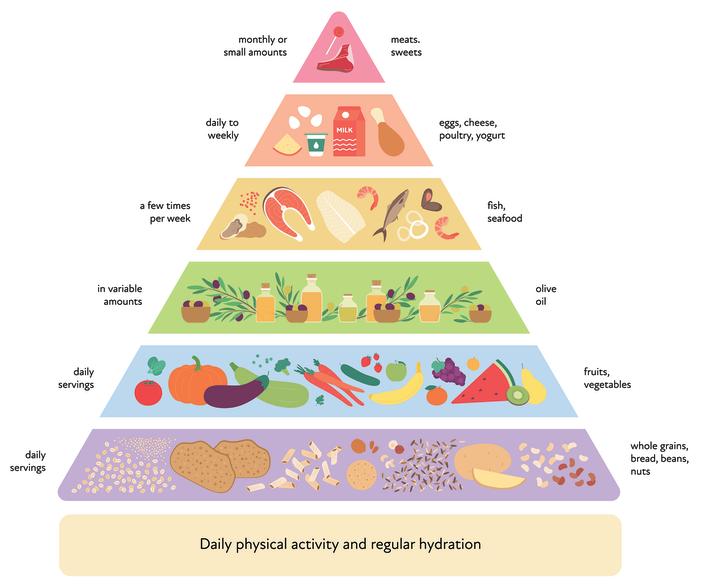
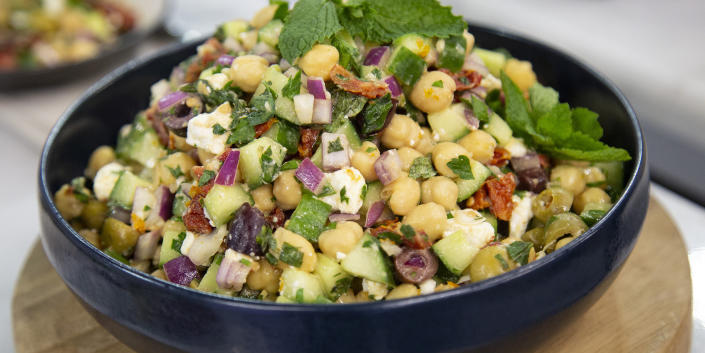


/cloudfront-us-east-1.images.arcpublishing.com/gray/NHQCZRNYDBHGFOOLHM6AYN2V2I.JPG)

:max_bytes(150000):strip_icc()/mindy-kaling-food-photos-instagram-b9369a75ce1b453abc0ba75d43b277bd.jpg)


